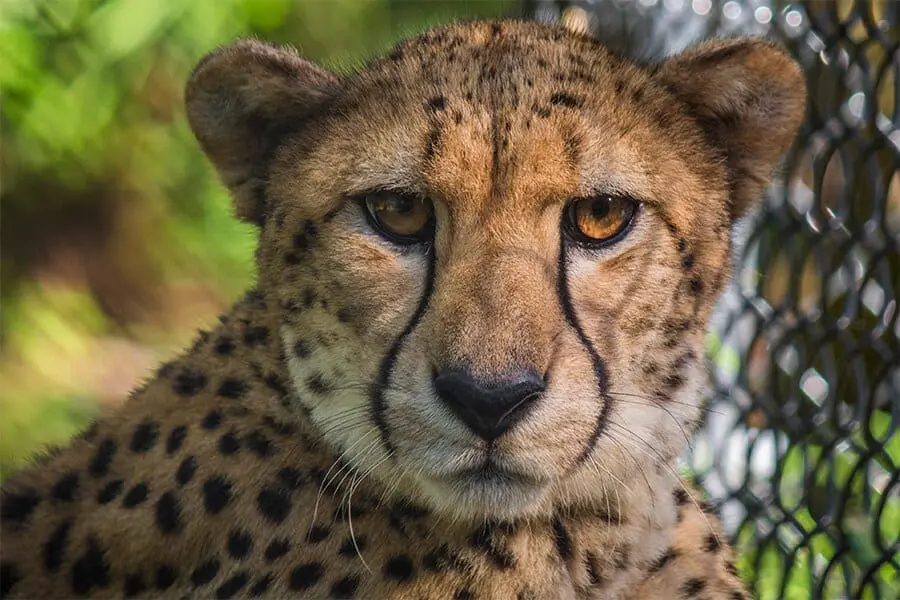

Yoda stares down the camera.
When someone says “fastest runner in the world,” most people know they’re talking about the cheetah. It only takes three seconds for a cheetah to reach its top speed of 70 miles per hour—that’s as fast as cars drive on the highway! This cat’s long, muscular tail is flat and acts like the rudder of a boat, helping it steer and keep its balance while running. When reaching top speed, cheetahs have a 21-foot stride, meaning their feet only touch the ground twice in that distance.
The Zoo is home to cheetah sisters Bria, Jaina and Yoda, and unrelated female Pepper. Though this foursome lives a comfortable life here, wild populations are declining at a rapid pace. It is estimated only 7,100 remain in the wild, down from an estimated 14,000 in 1975. They’ve been driven out of 91% of their historic range—once having roamed nearly all of Africa and much of Asia, cheetahs are now confined to predominantly six African countries: Angola, Namibia, Zimbabwe, Botswana, South Africa and Mozambique. Cheetahs are already almost extinct in Asia, with fewer than 50 individuals remaining in an isolated area of Iran.
Unsurprisingly, the driving factor behind this decline is our own species. Habitat loss due to conversion of land for agriculture or livestock is a predominant issue. Landowners will often kill cheetahs if they perceive them to be a threat to their livestock. They can also be victims to vehicle collisions, as well as poaching for their skin, meat and other body parts. The high demand for cheetahs as pets has led to the illegal trade of cubs from North Africa.
Some cheetahs are already living in protected areas such as national parks, where they are subject to fewer threats, but research has found that two-thirds of the wild cheetah population lives outside of these protected zones because of their need to roam. Researchers have determined it is unlikely for cheetahs to rebound in areas like West or Central Africa, but there is potential for the population to recover in other areas through landscape conservation.
If you want to help cheetahs and you have a little cash to spare, we recommend making a gift to Cheetah Conservation Fund, Cheetah Outreach or Cheetah Conservation Botswana. These organizations employ scientific research, habitat restoration projects, livestock guard dog programs and educational outreach to save these imperiled cats, and we’ve proudly contributed more than $30,000 to their efforts through our Quarters for Conservation program.
